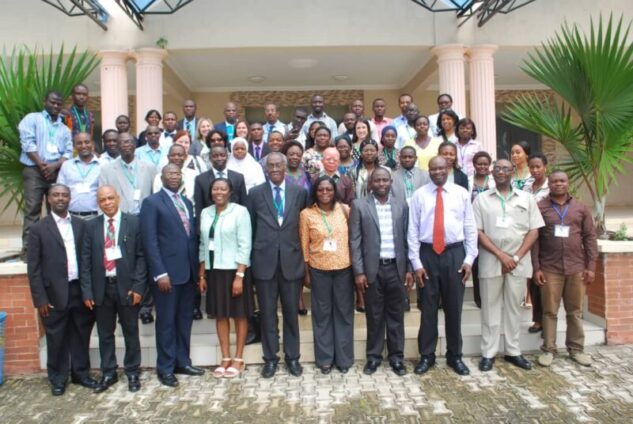Scientists from Ghana, Nigeria, and the United States have published groundbreaking research in the New England Journal of Medicine, identifying a significant genetic factor contributing to kidney disease among West African populations. The study, conducted through the Human Health and Heredity in Africa (H3Africa) Kidney Disease Research Network, examined 8,355 people from Ghana and Nigeria, with Ghanaians comprising 36.7percent of participants.
This extensive research effort represented one of the largest genetic studies focused on kidney disease in African populations to date. The research revealed that variants in the Apolipoprotein L1 (APOL1) gene, which originally protected African ancestors from sleeping sickness (Trypanosomiasis), now increases the risk of chronic kidney disease.
According to Dr. Dwomoa Adu, lead researcher from the University of Ghana Medical School, "Almost a third of Ghanaians studied had two copies of the gene (29.7percent) and 43.7percent had one copy of the gene. Compared with patients with no gene, one copy of the gene increased the risk of kidney failure by 18percent almost by a fifth, and two copies of the APOL1 gene increased the risk of kidney disease by a quarter (25percent),” he added.
The collaborative research which was spearheaded by Dr. Dwomoa Adu, Professors Ojo and Salako received significant contributions from a team of doctors and scientists from Ghana and Nigeria.
In Ghana, the research team included scientists from three major institutions. The University of Ghana Medical School was represented by Dr. Charlotte Osafo, and Professor Vincent Boima. From the Kwame Nkrumah University of Science and Technology (KNUST), Professor Sampson Antwi and the late Professor Jacob Plange-Rhule contributed their expertise as did Professor Alexander Nyarko and Professor Anita Ghansah from the Noguchi Memorial Institute of Medical Research.
The gene variants' impact mirrors other evolutionary adaptations found in African populations. As Dr. Adu explained, "In this way the gene is like the sickle cell gene that protected people against malaria but can cause crises."
This evolutionary trade-off highlights the complex relationship between genetic adaptation and modern health challenges in African populations. The research team's findings suggest that what once served as a protective mechanism against a deadly disease has become a significant contributing factor for kidney disease in contemporary times.The implications of this research extend far beyond West Africa, potentially benefiting populations of African descent worldwide, Dr. Adu noted.
The identification of this genetic link opens new avenues for understanding kidney disease progression and could lead to more targeted treatment approaches. These findings represent a significant step forward in addressing the high incidence of kidney disease in African populations and their descendants globally.
The research received substantial support through core funding from the National Human Genome Research Institute (U54 HG006939), the National Institute of Diabetes and Digestive and Kidney Diseases (U54 DK116913 and U01 DK107131), and the Office of the Director at the National Institutes of Health, USA (1ZI AHG200362).
About H3Africa Kidney Disease Research Network: The H3Africa (Human Heredity and Health in Africa) is a pioneering initiative established in 2010, co-funded by the National Institutes of Health (NIH) and the Wellcome Trust, aimed at advancing genomics research across Africa. The program empowers African scientists to explore the genetic and environmental factors impacting diseases such as malaria, tuberculosis, sleeping sickness, bilharzia, and hearing impairment.
Latest Stories
-
Trump says ready to use military, national emergency for mass deportations
42 mins -
Spirit Airlines files for bankruptcy protection
50 mins -
Diddy called witnesses from prison, prosecutors say
54 mins -
Cholera outbreak: Central region records 7 deaths, 47 confirmed and 720 suspected cases
1 hour -
Regions begin receiving EC’s election materials ahead of polls
2 hours -
Eudirok Investment launches Regional Smart Cities Project
2 hours -
Expired rice: I’m disappointed in Frema Opare’s comment, she also wants to be clearing agent – Ablakwa
2 hours -
Prof. Samuel Ato Duncan launches historic blueprint for global sustainable peace
2 hours -
‘My heart bleeds’- Kurt Okraku reacts to Black Stars’ AFCON failure
3 hours -
Life Care Technology MD Ing. Bishoy Fouad honoured at 2024 Ghana Philanthropy Awards
3 hours -
I won’t resign as Black Stars coach – Otto Addo
4 hours -
Free SHS: Expired rice distribution saga is mere propaganda – Chief of Staff
4 hours -
We knew we could beat Ghana- Niger coach Badou Zaki
4 hours -
Former NSMQ ‘shark’ returns to school, says the future is bright
4 hours -
AFCON 2025Q: Ghana lose 2-1 to Niger at home to end disastrous campaign
4 hours

